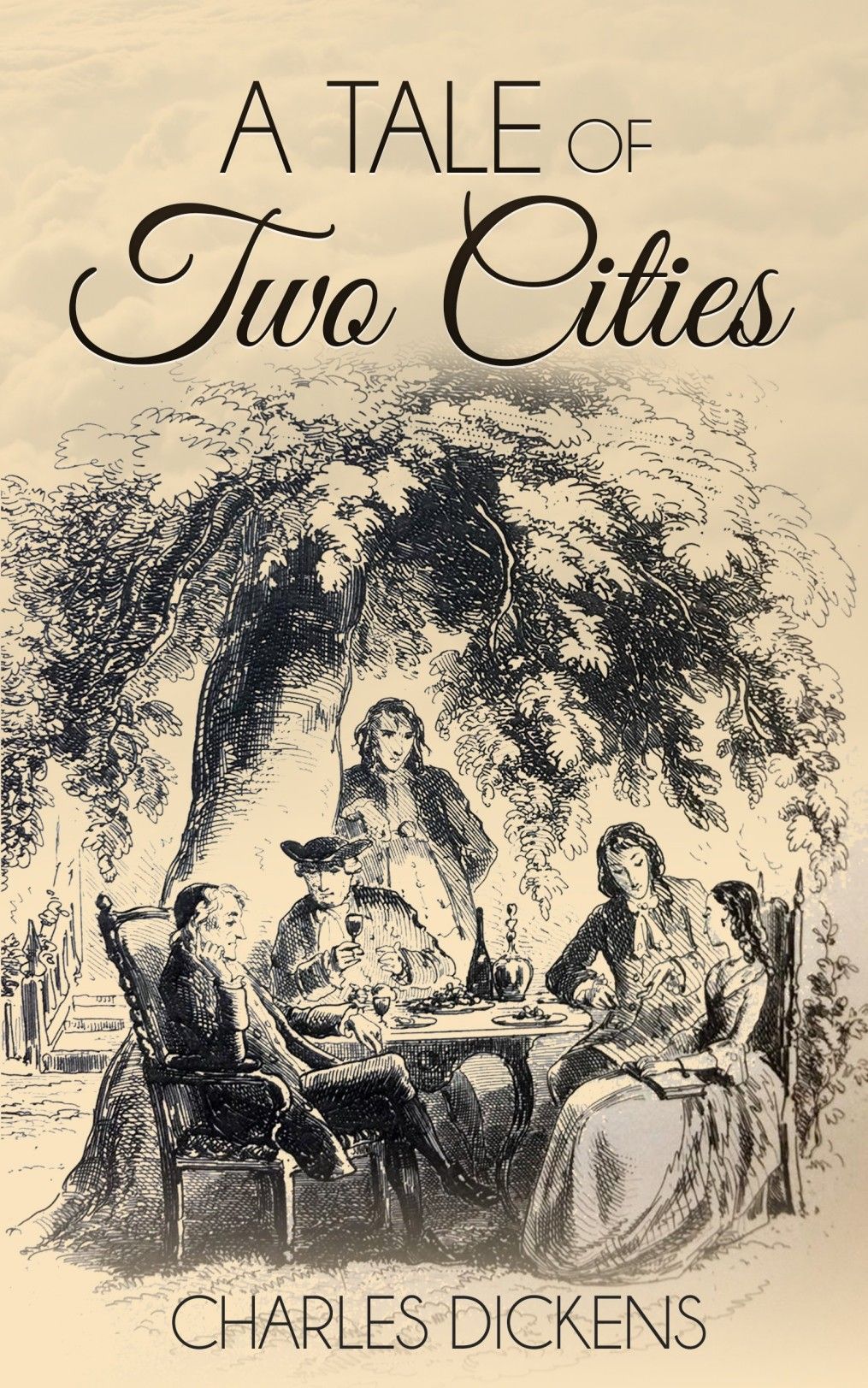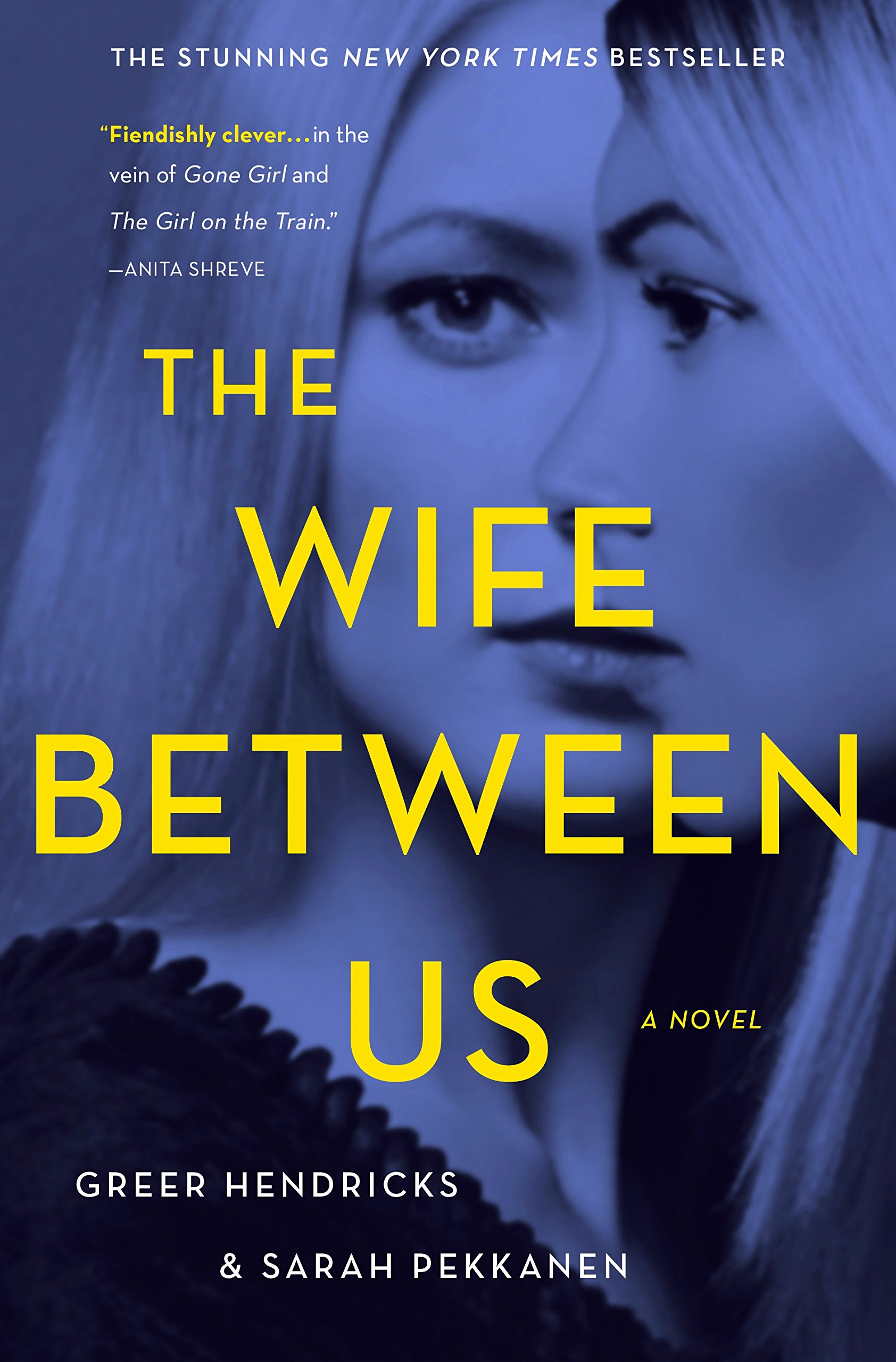

Book Review: A Tale of Two Cities
An Intro
A Tale of Two Cities is a historical fiction novel written by Charles Dickens in the year 1859. The book was originally published in parts in a periodical called All the Year Round in thirty one installments. Yep, you read that right. Thirty one. The sheer will of Mr. Dickens is commendable. And now, I think that’s enough base facts about the book. You want more, I’ll refer you to Wikipedia. Or better yet, a library. This is a review, and more importantly, its my review. So if you disagree with certain things, oopsie doo, my bad...not.
I first read this book when I was twelve. We’d been assigned this for our English Lit. class as a supplementary reader. Didn’t give it much thought back then. But when I re-read it, I fell in love. For multiple reasons. The main being…wait for it…DOPPELGANGERS. (Seriously, I could go on and on about this topic, so lets just put a full stop there.)
There are four main people you need to remember:
- Dr. Manette, aka the person it all started with.
- Lucy Manette, the said doctor’s daughter, aka, the ray of sunshine.
- Charles Darnay, aka the impostor and the idiot. (Is it too obvious I don’t like this guy? Yeah? My bad.)
- And lastly, my favorite, Sydney Carton, aka the doppelganger and the sweetheart.
The Story
The best thing about it is that it's set during the French Revolution, which is, literally my favorite historic event in history. I mean, I’m all for chopping heads of pig-headed French aristocrats on the Guillotine. Satisfaction at its highest. (I can feel you all questioning my mental sanity. Word of advice, don’t. It’ll get you nowhere.)
So now, it’s the year 1775. Our doctor is released from the infamous French prison, La Bastille, after ten whole years, after being sentenced without a trial by the Evrémondes. Keep that name in mind, y’all. Its important. Which totally explains why he’s so loopy in the beginning. And to get him back to England, enters our knight shining in breeches: Mr. Lorry. I didn’t introduce him? Oops, its probably because I don’t particularly care about him. Nevertheless, Mr. Lorry is a British businessman who thinks it’d be a good idea for the doctor to come back to England with him and live life ‘normally’ with this lovely daughter, Lucy. But here’s the catch. The doctor is so far gone, that he doesn’t seem to come to terms with the fact that he is not in prison anymore. He spends all his time cobbling shoes and pacing up and down in his dark room. It looks as though he’s so doomed to live a pitiful life. The way its written though, man I felt pitiful of myself.
But fortunately for him, his beautiful daughter, who has grown into a charming young woman, is such a blonde, perfect ray of sunshine. She’s practically like a Teletubby. She’s that perfect. Go ahead, I’ll wait while you throw up. Done? Okay. Lucy is fully capable of taking care of her father and bring him back to the real world. And she does it. Her perfect little self does it. Didn’t doubt that for a second. Wha...? I didn’t. Five years later, the doctor is a new person. He starts practicing again and they all live happily in a quaint little house. Perfect, innit?
Fast forward to the part where the Manettes are called as witnesses in a treason case. A man named Charles Darnay, is accused of committing treason against the English government. Now this part is awesome. The way Dickens describes the trials and the ‘esteemed’ members of the court is just pure gold. Satire at its highest, man! Thanks to a testimony by Lucy and some side work by the said doppelganger, Charles is now a free man. Happy ending, don’t you think? Oh no, no, no! there’s more mushy, vomit worthy details coming up.

Charles is completely taken with Lucy. He realizes how perfect her perfectness is, and so, he starts to visit the Manettes (almost every day like a drop-in desi aunty, you don’t have the heart to say no to, but eventually grows on you). Remember Sydney? The doppelganger? Yep, he’s the other guy who takes a liking to Lucy. But Carton’s got serious self-esteem issues. Charles is like those shiny new toys you get, and Sydney is, well, he’s the musty old teddy bear you’ve had forever. Do you see why he’s running so low on self-esteem *playing Gasoline by Halsey in the background*. Sydney is completely smitten with Lucy, but he’s super convinces that he could never deserve her and tells as much to Lucy. I’ll spare you the mushy ‘heart-wrenching’ conversation. Lucy agrees with Sydney but tells him that she’d like to help him become a better person. Sydney declines. What a shocker. He’d rather wallow in misery and self-pity because that is so much more fun.
Charles, however, marries Lucy. On their wedding, he lets in his father-in-law on a little secret. He’s a French nobleman in disguise. To be specific, he’s the Marquis Evrémonde. Remember how I asked you to keep that name in mind? Yeah. The original Evrémonde brothers, who happen to be our darling Charles’ father and uncle, had locked up the doctor in the first place. The doctor being a good soul, realizes that Charles is nothing like his predecessors and accepts him for who he is. They get married, Charles begins working as a tutor, makes a decent wage and things are going perfect. The End? Nope, not yet.
You’re probably wondering, hey, it’s a tale of two cities. Where’s the other one? Patience, grasshopper. All in good time. While everything was fine and dandy in London, everything was perfectly chaotic in Paris. Someone’s lit the match for what will be later called the French Revolution, and things are stirring up. People are starving and dying, the aristocracy is mean as ever (no surprise there), and people are beginning to band together in groups as the “citizens” of a new republic. Ernest Defarge and his wife (these are the people the doctor stayed with, after his release from the Bastille) are the center of one of these revolutionary groups.
In the village of the Evrémondes, the current marquis is murdered. Though the killer is caught and hanged, things are still tense. Finally, because he’s being thrown in prison, the old steward of the Evrémonde estate sends a desperate letter to the new marquis. I’ll give you three guesses to figure out who the new marquis is. When the recipient finally gets the letter after a load of weird accidents, he realizes that even though he’d left everything behind, he should help this steward he doesn’t really know. Sigh. I know. The sense of sheer stupidity is admirable. Honestly. Now, our darling Charles doesn’t seem to realize that all relationships are based on trust and communication and sets off to Paris without telling his wife or father-in-law.
Unfortunately for Charles, he picks a really bad time for homecoming. Turns out that the revolutionaries have taken over and the King and Queen are set to be executed by La Guillotine. Charles is immediately detained upon his arrival and realizes he’s messed up royally. He’s set to be executed too. Fortunately, (or unfortunately, depends on how you look at it, really) Dr. Manette hears about this fate and immediately rushes to Paris, his daughter in tow. Turns out that he’s somewhat of a celebrity there. Anyone who was falsely accused and thrown in prison because of the aristocrats is revered as the heroes of the new republic. The doctor shows up at Darnay’s trial and gives a year long speech about his son-in-law and his good naturedness. The judges are impressed and, once again, Charles is off the hook. The little family is happy (well as happy as one can be in the middle of a revolution). Well at least for a few hours.
Charles is arrested again, and this time it's Dr. Manette’s fault. Wait hold up. Dr Manette?! Yes, ladies and gents, Dr. Manette. While the doctor was in prison, he'd written a letter, giving all the details about how he was falsely accused and imprisoned by the Evrémondes and hid it in the walls of the Bastille. It also speaks of the multiple crimes committed by the Evrémonde brothers, which just so happen to include all the sordid details of rape and murder. The letter finds itself in the hands of Ernest Defarge who accuses Charles of being a member of nobility and a stain on the country’s name. The citizens of the new republic decide that Darnay should pay for his family’s crimes.

Lucy is heartbroken, obviously, and she doesn’t know what to do. Guess who comes to the rescue? Sydney Carton. Yes. The doppelganger. Sydney sees the anguish Lucy is in, and decides that he’ll take Charles’ place in prison. Lucy is ever thankful for Carton’s sacrifice and they leave Paris under the cover of the night. The very next day, the scheduled execution of “Charles Darnay” takes place. People who saw the execution, claimed that he was by far the most peaceful looking person to have ever been executed.
The book ends with the final thoughts of Sydney Carton, which never fail to make me cry. Sure, there were times when I wanted to throw the book away or go into a murdering rampage, but these thoughts of Carton always hit so deep that I always, always tear up. Sydney’s sacrifice for wasn’t because he wanted to save Darnay. No, it was because he truly and deeply loved Lucy Manette, that he couldn’t bear to see her in pain or anguish. The last line of the book is quite beautiful and gives a satisfying ending to the beautiful life of Sydney Carton.
It is a far, far better thing that I do, than I have ever done; it is a far, far better rest I go to than I have ever known.
Conclusion
So that was the story. Well, it’s the story as I perceived it. Frankly, quite a lot of people look over this book as one of the boring pieces among the classics. I did that too. No, I’m serious. I did. The only reason I’d picked it up again is because my favorite character of all time, William Herondale, loved this book and he related so much to Sydney Carton. (If you know who William H. is, then five cupcakes to you. If you don’t, you’re missing out.) It was his perspective of Sydney Carton that made me like Carton more. Overall though, Carton was probably the most relatable and realistic character in the entire book. The others were just too unreal and perfect for me. The way Dickens portrays his characters and the shift from peaceful London to the terrified city of Paris, it is all so flawless that I’ll cry. It is, without a doubt, one of the best classics ever written. If you’re in the mood for a history lesson filled with a swashbuckling doctor, a pathetic impostor nobleman, a perfect maiden, and a knight shining in breeches, then this is your go-to book. I’m sure you won’t be disappointed.



Comments